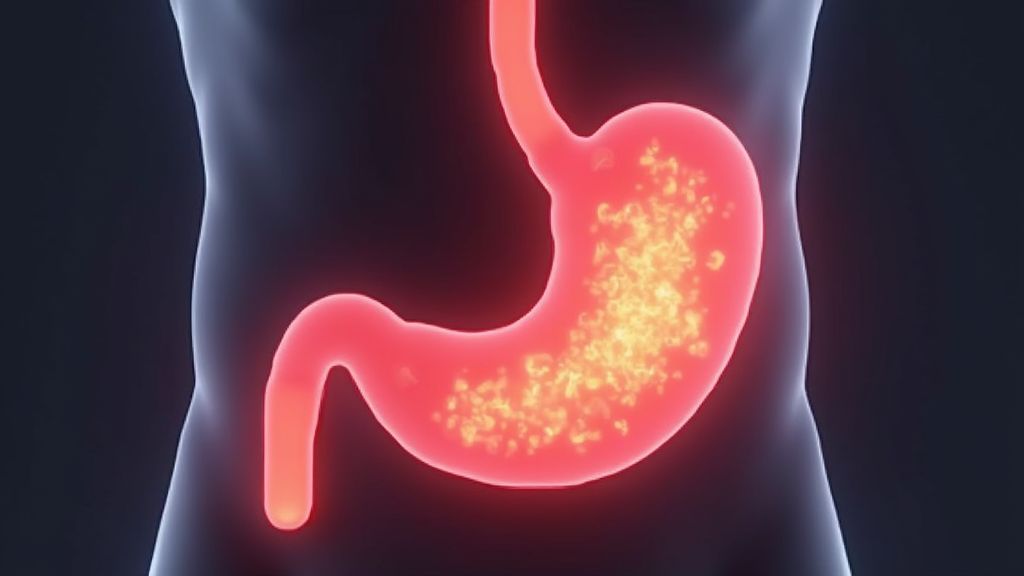The Silent Killer: 9 Common Signs of Gastric Cancer
Gastric cancer, also known as stomach cancer, is a silent killer that often goes undetected until it reaches an advanced stage. Recognizing the symptoms early on can make a significant difference in treatment options and outcomes. Here are 9 common signs of gastric cancer to watch out for:

Persistent Indigestion
One of the early signs of gastric cancer is persistent indigestion that doesn’t seem to improve with over-the-counter medication. This could be accompanied by a feeling of fullness even after eating small amounts of food. If you experience frequent indigestion that lasts for more than a few weeks, it’s essential to consult a healthcare professional for further evaluation.
Unexplained Weight Loss
Unexpected weight loss without any changes in diet or exercise habits can be a red flag for gastric cancer. When cancer cells grow in the stomach, they can interfere with the body’s ability to absorb nutrients from food, leading to unexplained weight loss. If you notice a significant drop in weight without trying, it’s crucial to have a thorough medical assessment to rule out any serious underlying conditions.
Abdominal Pain
Persistent or recurring abdominal pain, particularly in the upper abdomen, can be a sign of gastric cancer. The pain may feel dull, achy, or sharp and could worsen after eating. If you experience unexplained abdominal pain that doesn’t improve with medication or changes in diet, it’s important to seek medical attention to determine the underlying cause.
Vomiting Blood
Vomiting blood, also known as hematemesis, is a severe symptom that should never be ignored. It can be a sign of various health conditions, including gastric cancer. If you notice blood in your vomit or experience vomiting blood, seek immediate medical attention as it could indicate a serious gastrointestinal issue that requires prompt intervention.
Black Stools
Dark or tarry stools, often referred to as black stools, can be an indication of gastrointestinal bleeding, which may occur in gastric cancer. The dark color of the stool indicates the presence of blood in the digestive tract. If you notice black stools or any changes in stool color that persist, it’s essential to consult a healthcare provider for further evaluation.
Difficulty Swallowing
Difficulty swallowing, also known as dysphagia, can occur when a tumor in the stomach obstructs the passage of food through the esophagus. This can lead to a sensation of food getting stuck in the throat or chest, making it challenging to swallow. If you experience persistent difficulty swallowing or choking while eating, it’s important to seek medical advice to determine the underlying cause.
Fatigue and Weakness
Persistent fatigue, weakness, and lethargy that don’t improve with rest can be symptoms of gastric cancer. Cancer cells can deplete the body’s energy reserves, leading to overwhelming fatigue and a general feeling of weakness. If you experience unexplained fatigue along with other symptoms, it’s crucial to consult a healthcare professional for a comprehensive evaluation.
Bloating and Gas
Chronic bloating, gas, and feelings of fullness without a logical explanation could be early signs of gastric cancer. The tumor’s presence in the stomach can disrupt the normal digestive process, leading to bloating and excessive gas production. If you notice persistent bloating and gas that doesn’t improve with dietary changes, it’s important to seek medical advice for further assessment.
Jaundice
Jaundice, characterized by yellowing of the skin and eyes, can be a sign of advanced gastric cancer that has spread to the liver. When the cancer affects the liver, it can obstruct the bile ducts, leading to a buildup of bilirubin in the bloodstream. If you develop jaundice along with other symptoms of gastric cancer, it’s essential to seek immediate medical attention for a thorough evaluation and appropriate management.
